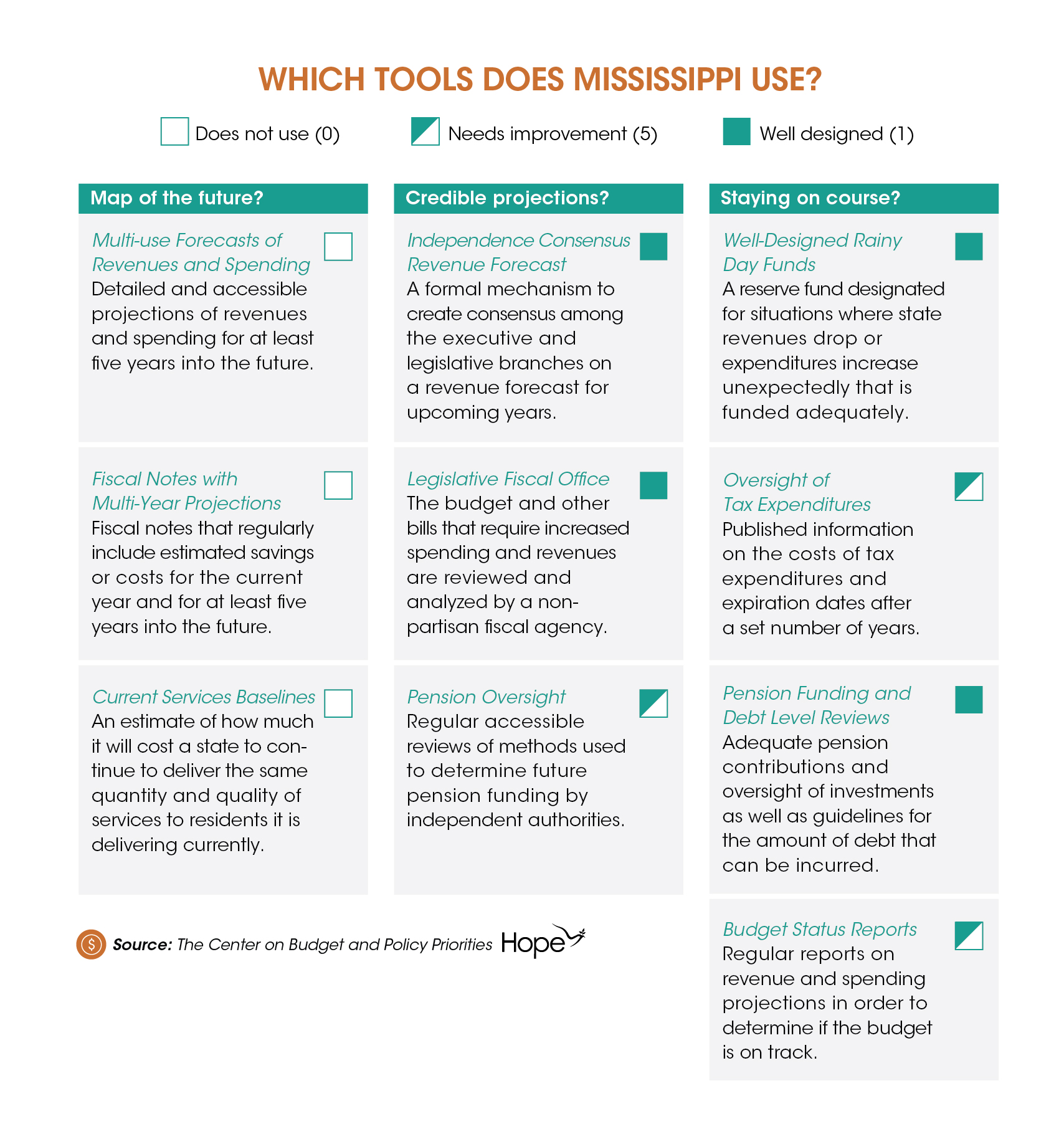Budget crisis sheds light on weaknesses in fiscal planning
July 8th, 2016
Mississippi’s budget crisis highlights some of the weaknesses in our state’s budgeting and forecasting process. For example, cost estimates are unavailable for many of the tax bills debated and passed. This makes it difficult to know how much a tax break will affect revenue collections. For example, Mississippi has passed several tax cuts without knowing the full cost and the state recently closed out the fiscal year with a special legislative session to allocate more money to fill a budget shortfall. Moving forward, the state should examine opportunities to adopt budget practices, like many other states, that would help to better inform lawmakers as they make budgetary decisions. The report “Budgeting for the Future” from the Center on Budget and Policy Priorities examines states’ fiscal planning habits and recommends best practices. The report identifies several areas where Mississippi can improve its budgeting process that include: producing detailed fiscal notes for proposed legislation, making multi-year revenue projections, looking at current and future needs, and more carefully evaluating tax expenditures. Fiscal planning allows states to look ahead to trends in revenue, examine the potential impact of new legislation, and evaluate the changing costs of providing state services. The report highlights not only some tools states can use to plan for the future, but also how to give citizens more information about their state’s budget.
Click to enlarge
Of particular interest, is Mississippi’s lack of adequate fiscal notes. A fiscal note is a document showing the estimated fiscal impact (i.e., cost) of proposed legislation. The Center’s report identified Mississippi as one of the seven worst states for fiscal notes practices. In 38 states, fiscal notes are routinely conducted or required on all bills that will have a significant fiscal impact. In Mississippi, fiscal notes are often not conducted and those that are, are not made public.
Click to enlarge

Fiscal notes allow legislators and the public to consider the cost of proposed legislation as it is being decided. While we have cost estimates for some of the tax breaks enacted in last legislative term, for many others the impact is listed as “unknown.” Without fiscal notes, policy makers cannot adequately compare legislation like tax credits, or other bills that would reduce state revenue against other legislative priorities. The lack of transparency also means there is less information for citizens on the fiscal impact of revenue reducing legislation. The current budget shortfall is an example of the consequences the lack of adequate fiscal planning can have. Mississippi should look to best practices from other states for guidance on improving fiscal planning and transparency.








